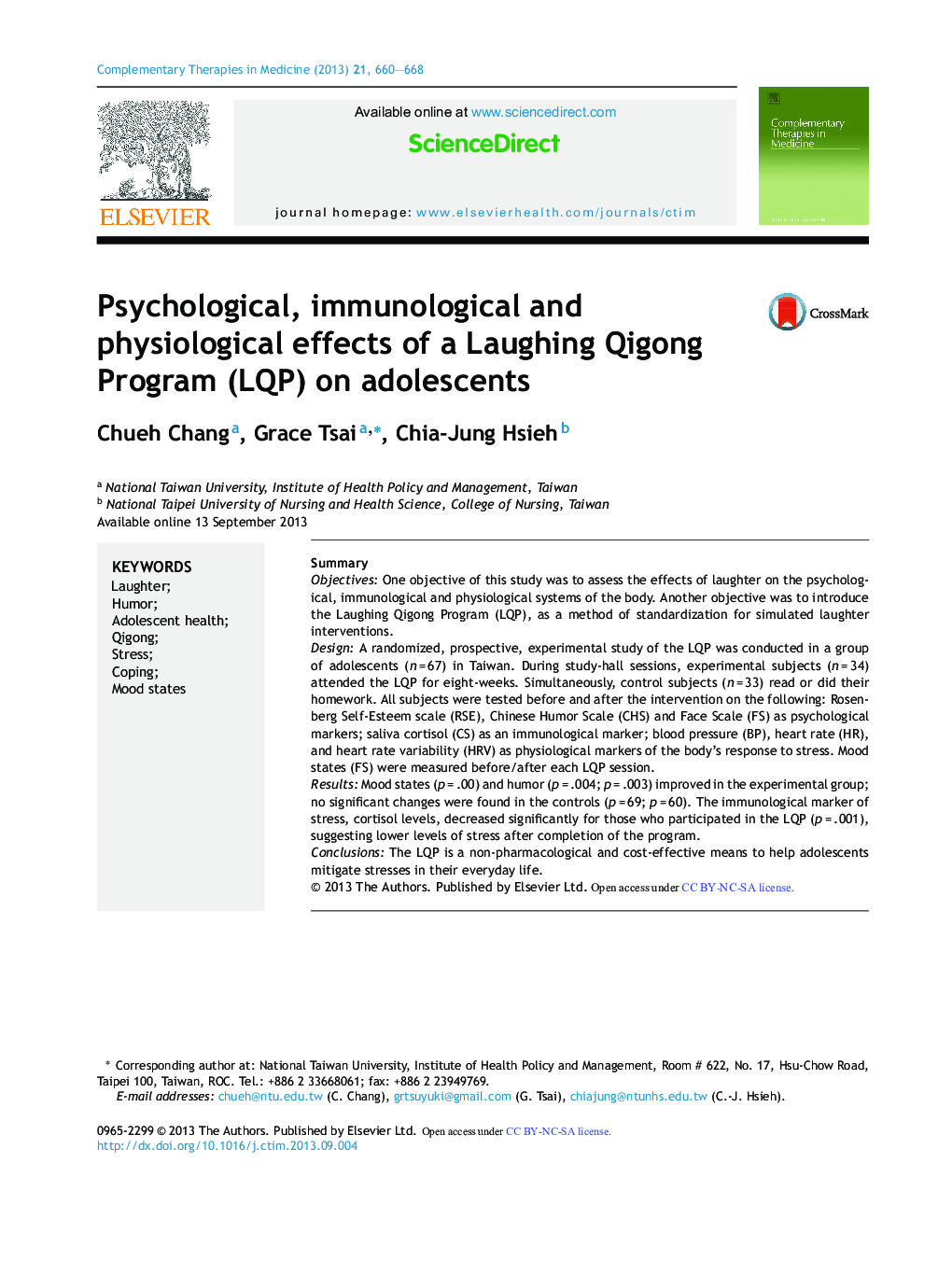| Article ID | Journal | Published Year | Pages | File Type |
|---|---|---|---|---|
| 5865731 | Complementary Therapies in Medicine | 2013 | 9 Pages |
SummaryObjectivesOne objective of this study was to assess the effects of laughter on the psychological, immunological and physiological systems of the body. Another objective was to introduce the Laughing Qigong Program (LQP), as a method of standardization for simulated laughter interventions.DesignA randomized, prospective, experimental study of the LQP was conducted in a group of adolescents (n = 67) in Taiwan. During study-hall sessions, experimental subjects (n = 34) attended the LQP for eight-weeks. Simultaneously, control subjects (n = 33) read or did their homework. All subjects were tested before and after the intervention on the following: Rosenberg Self-Esteem scale (RSE), Chinese Humor Scale (CHS) and Face Scale (FS) as psychological markers; saliva cortisol (CS) as an immunological marker; blood pressure (BP), heart rate (HR), and heart rate variability (HRV) as physiological markers of the body's response to stress. Mood states (FS) were measured before/after each LQP session.ResultsMood states (p = .00) and humor (p = .004; p = .003) improved in the experimental group; no significant changes were found in the controls (p = 69; p = 60). The immunological marker of stress, cortisol levels, decreased significantly for those who participated in the LQP (p = .001), suggesting lower levels of stress after completion of the program.ConclusionsThe LQP is a non-pharmacological and cost-effective means to help adolescents mitigate stresses in their everyday life.
